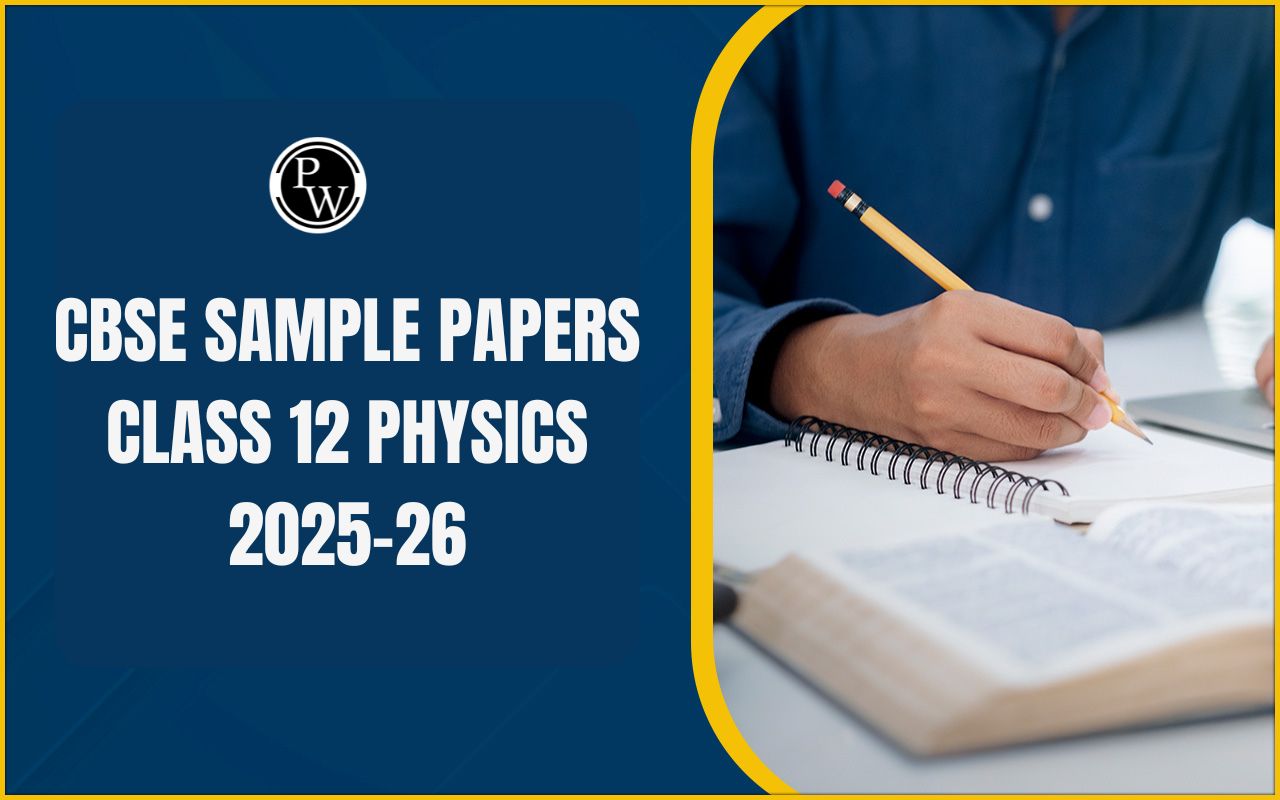
NCERT Solutions for Class 12 Maths Chapter 6 Exercise 6.2 (Applications of Derivatives)
NCERT Solutions for Class 12 Maths Chapter 6 Exercise 6.2 Applications of Derivatives is prepared by the academic team of Physics Wallah. We have prepared NCERT Solutions for all exercise of Chapter 6. Given below is step by step solutions of all questions given in the NCERT Solutions for Class 12 Maths Chapter 6 Exercise 6.2.NCERT Solutions for Class 12 Maths Chapter 6 Exercise 6.2 Overview
NCERT Solutions for Class 12 Maths Chapter 6 Exercise 6.2 addresses these significant subjects. In order to fully comprehend the concepts presented in the chapter and make effective use of the provided solutions, it is recommended that students go over each topic in great detail. The intention is for students to effortlessly achieve excellent exam scores after reviewing and practicing these responses.NCERT Solutions for Class 12 Maths Chapter 6 Exercise 6.2
Solve The Following Questions of NCERT Solutions for Class 12 Maths Chapter 6 Exercise 6.2:NCERT Solutions for Class 12 Maths Chapter 6 Miscellaneous Exercise
Question 1. Show that the function given by f(x) = e 2x is strictly increasing on R. Solution : Given: f'(x) = e 2x Now, x ∈ R Since the value of e 2x is always positive for any real value of x, e 2x > 0. ⇒2e 2x > 0 ⇒f'(x) > 0 So f(x) is incerasing on R.NCERT Solutions for Class 12 Maths Chapter 6 Exercise 6.1
Question 2. Show that the function given by f ( x ) = 3 x + 17 is strictly increasing on R. Solution : Question
3.
Show that the function given by
f
(
x
) = sin
x
is
(a) strictly increasing (0,π/2) (b) strictly decreasing in (π/2,π) (c) neither increasing nor decreasing in (0,π)
Solution :
Given:
The given function is
f
(
x
) = sin
x
.
Question
3.
Show that the function given by
f
(
x
) = sin
x
is
(a) strictly increasing (0,π/2) (b) strictly decreasing in (π/2,π) (c) neither increasing nor decreasing in (0,π)
Solution :
Given:
The given function is
f
(
x
) = sin
x
.

NCERT Solutions for Class 12 Maths Chapter 6 Exercise 6.3
Question 4. Find the intervals in which the function F given by 2x 2 - 3x is (a) strictly increasing, (b) strictly decreasing. Solution : Given:
NCERT Solutions for Class 12 Maths Chapter 6 Exercise 6.4
Question 5. Find the intervals in which the function F given by f ( x ) = 2 x 3 − 3 x 2 − 36 x + 7 is (a) strictly increasing, (b) strictly decreasing. Solution : (a)Given:.png)
NCERT Solutions for Class 12 Maths Chapter 6 Exercise 6.5
Question 6. Find the intervals in which the following functions are strictly increasing or decreasing:(a) x 2 + 2 x − 5 (b) 10 − 6 x − 2 x 2
(c) −2 x 3 − 9 x 2 − 12 x + 1 (d) 6 − 9 x − x 2
(e) ( x + 1) 3 ( x − 3) 3
Solution : (a) Given:



 Question
7. Show that
Question
7. Show that
 is an increasing function of x throughout its domain.
Solution :
Given:
is an increasing function of x throughout its domain.
Solution :
Given:
 ∴dydx=11+x-(2+x)(2)-2x(1)(2+x)2=11+x-4(2+x)2=x2(1+x)(2+x)2
Now, dydx=0
⇒x2(1+x)(2+x)2=0⇒x2=0 [(2+x)≠0 as x>-1]⇒x=0
Since x > -1 , point = 0 divides the domain (−1, ∞) in two disjoint intervals i.e., −1 < x < 0 and x > 0
When −1 < x < 0, we have:
x<0⇒x2>0x>-1⇒(2+x)>0⇒(2+x2)>0
∴ y'=x2(1+x)(2+x)2>0
Also, when x > 0
x>0⇒x2>0, (2+x)2>0
∴ y'=x2(1+x)(2+x)2>0
Hence, function f is increasing throughout this domain
Question
8. Find the value of x for which
∴dydx=11+x-(2+x)(2)-2x(1)(2+x)2=11+x-4(2+x)2=x2(1+x)(2+x)2
Now, dydx=0
⇒x2(1+x)(2+x)2=0⇒x2=0 [(2+x)≠0 as x>-1]⇒x=0
Since x > -1 , point = 0 divides the domain (−1, ∞) in two disjoint intervals i.e., −1 < x < 0 and x > 0
When −1 < x < 0, we have:
x<0⇒x2>0x>-1⇒(2+x)>0⇒(2+x2)>0
∴ y'=x2(1+x)(2+x)2>0
Also, when x > 0
x>0⇒x2>0, (2+x)2>0
∴ y'=x2(1+x)(2+x)2>0
Hence, function f is increasing throughout this domain
Question
8. Find the value of x for which
 is an increasing function.
Solution :
is an increasing function.
Solution :
 Question
9. Prove that
Question
9. Prove that
 is an increasing function of θ in [0, π/2]
Solution :
is an increasing function of θ in [0, π/2]
Solution :

 Question
10. Prove that the logarithmic function is strictly increasing on (0,∞)
Solution :
Given: The given function is f(x) = logx
∴ f'(x) = 1/x
It is clear that for x > 0, f'(x) = 1/x > 0.
Hence, f(x) = log x is strictly increasing in interval (0, ∞).
Question
11. Prove that the function f given by f (x) = x
2
- x + 1 is neither strictly increasing nor strictly decreasing on (-1,1)
Solution :
Given: The given function f (x) = x
2
- x + 1
Question
10. Prove that the logarithmic function is strictly increasing on (0,∞)
Solution :
Given: The given function is f(x) = logx
∴ f'(x) = 1/x
It is clear that for x > 0, f'(x) = 1/x > 0.
Hence, f(x) = log x is strictly increasing in interval (0, ∞).
Question
11. Prove that the function f given by f (x) = x
2
- x + 1 is neither strictly increasing nor strictly decreasing on (-1,1)
Solution :
Given: The given function f (x) = x
2
- x + 1
 hence,f is neither strictly increasing nor decreasing on the interval (-1,1)
Question
12. Which of the following functions are strictly decreasing on (0,π/2)
hence,f is neither strictly increasing nor decreasing on the interval (-1,1)
Question
12. Which of the following functions are strictly decreasing on (0,π/2)
(A) cos x
(B) cos 2 x
(C) cos 3 x
(D) tan x
Solution :

 Question
13. On which of the following intervals is the function f given by f(x) = x
100
+ sinx - 1 is strictly decreasing:
(A) (0, 1)
(B) (π/2,π)
(C) (0,π/2)
(D) None of these
Solution :
Given:
Question
13. On which of the following intervals is the function f given by f(x) = x
100
+ sinx - 1 is strictly decreasing:
(A) (0, 1)
(B) (π/2,π)
(C) (0,π/2)
(D) None of these
Solution :
Given:
 Question
14. Find the least value of a such that the function f given by f(x) = x
2
+ ax + 1 strictly increasing on (1, 2).
Solution :
Question
14. Find the least value of a such that the function f given by f(x) = x
2
+ ax + 1 strictly increasing on (1, 2).
Solution :
 Question
15. Let I be any interval disjoint from (-1,1) Prove that the function f given by f(x) = x + 1/x is strictly increasing on I.
Solution :
Given:
Question
15. Let I be any interval disjoint from (-1,1) Prove that the function f given by f(x) = x + 1/x is strictly increasing on I.
Solution :
Given:
 ∴ f is strictly increasing on (-∞, 1) and (1, ∞)
Hence, function f is strictly increasing in interval I disjoint from (−1, 1).
Hence, the given result is proved.
Question
16. Prove that the function f given by f(x) = log sin x is strictly increasing on (0,π/2) and strictly decreasing on (π/2,π)
Solution :
Given:
∴ f is strictly increasing on (-∞, 1) and (1, ∞)
Hence, function f is strictly increasing in interval I disjoint from (−1, 1).
Hence, the given result is proved.
Question
16. Prove that the function f given by f(x) = log sin x is strictly increasing on (0,π/2) and strictly decreasing on (π/2,π)
Solution :
Given:
 Question
17. Prove that the function f given by f(x) = log cos x is strictly decreasing on (0,π/2) and strictly decreasing on (π/2,π)
Solution :
Given:
Question
17. Prove that the function f given by f(x) = log cos x is strictly decreasing on (0,π/2) and strictly decreasing on (π/2,π)
Solution :
Given:
 On the
Question
18. Prove that the function given by f(x) = x
3
- 3x
2
+ 3x - 100 is increasing in R.
Solution :
Given:
On the
Question
18. Prove that the function given by f(x) = x
3
- 3x
2
+ 3x - 100 is increasing in R.
Solution :
Given:
 Question
19. The interval in which y = x
2
e
-x
is increasing in:
(A) (-∞, ∞)
(B)(-2,0)
(C) (2, ∞)
(D) (0, 2)
Solution :
Given:
Question
19. The interval in which y = x
2
e
-x
is increasing in:
(A) (-∞, ∞)
(B)(-2,0)
(C) (2, ∞)
(D) (0, 2)
Solution :
Given:

NCERT Solutions For Class 12 Maths Chapter 6 Exercise 6.2 FAQs
How many exercise are there in application of derivatives?
What are the applications of derivatives?
Who invented application of derivatives?
What is sin differentiated?
What is dt in math?










